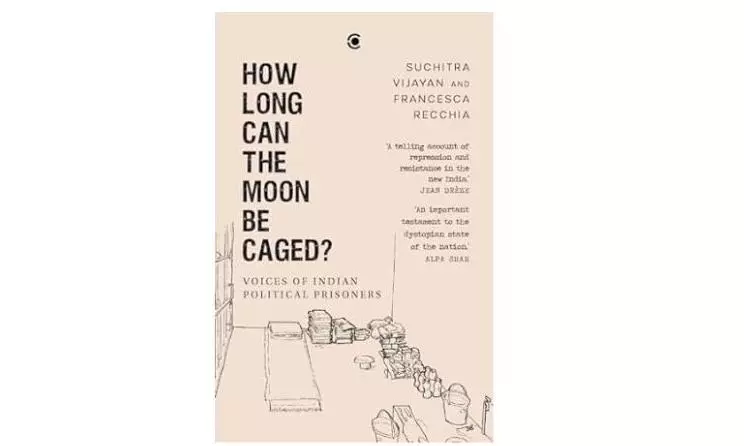Book Review | Compelling but one-sided critique of state repression
A valuable document, this work nevertheless falls short when it comes to addressing the central question posed by its authors

The Russian novelist Fyodor Dostoevsky once said, “The degree of civilisation in a society can be judged by entering its prisons.” In How Long Can the Moon Be Caged? by Suchitra Vijayan and Francesca Recchia, the authors examine the grim landscape of political repression in India.
In the chapter ‘A Season of Arrests’, the authors provide a detailed timeline of arrests made under the Narendra Modi government, by tracing events from the Bhima Koregaon arrests to the targeting of activists like G.N. Saibaba and members of the Pinjra Tod movement. However, while they criticise the judiciary for allegedly yielding to political pressures, they overlook instances where courts have upheld fundamental rights. This chapter would have been strengthened by a more nuanced analysis of the legal mandates and constraints faced by state agencies and courts, as well as a comparison to international protocols.
‘Cracking Down on Dissent’ provides a sharp analysis of the erosion of democratic norms, highlighting the abduction of G.N. Saibaba and the imprisonment of Binayak Sen. It also examines the persecution of the Bhima Koregaon 16 (BK16) and Muslim activists following the 2020 Delhi pogrom. The choice to use the term “pogrom” instead of “riots” raises important questions..
The chapter, ‘The Lies Factory’, critiques how language is manipulated to create parallel truths that align with the political interests of the state. But the book misses an opportunity to explore the historical and sociological context of the country’s penal system more thoroughly. It does not incorporate important perspectives from scholars such as Indian constitutional expert A.G. Noorani, criminologist Karuppannan Jaishankar, and journalist Sunetra Choudhury. The lack of engagement with these resources limits the book's analytical depth.
The chapter ‘A Community in Resistance’ explores the emotional and psychological impact of state repression on the families of political prisoners. In contrast, the chapter ‘Small Things’ highlights the symbolic significance of personal belongings — items left behind or tied to the memories of political prisoners. ‘Voices of Indian Political Prisoners” presents a collection of unpublished writings from political prisoners, including letters, journal entries, poems and short stories.
The book concludes with ‘Name the Names’, which serves as a repository of public memory and a testament to those who have faced persecution for their beliefs. While the act of documentation is essential, the book fails to provide a comprehensive answer to its central question: How can such repression be stopped? French philosopher Michel Foucault’s assertion in Discipline and Punish — “There is no power relation without the correlative constitution of a field of knowledge, nor any knowledge that does not presuppose and constitute at the same time power relations” — offers a critical lens through which to view the book’s limitations. Although the book presents a compelling one-sided critique, it lacks a balanced dialogue that could have supplied knowledge-based solutions to counter the state’s repression and propose judicial reforms.
How Long Can the Moon Be Caged? Voices of Indian Political Prisoners
By Suchitra Vijayan and Francesca Recchia
Westland
pp. 282; Rs 599

